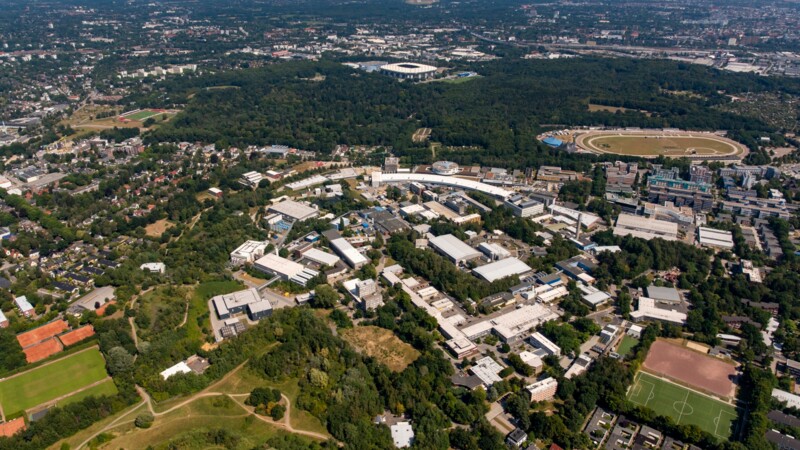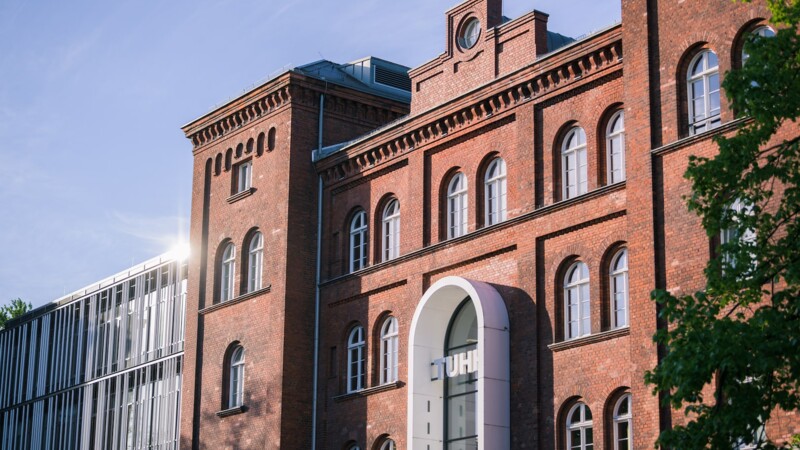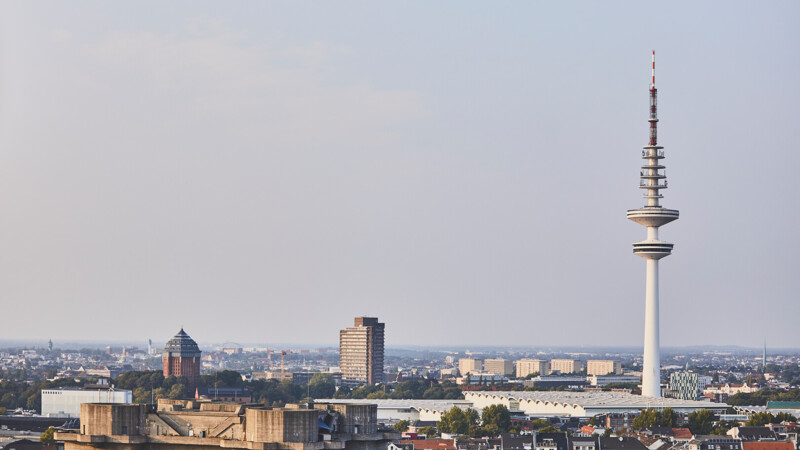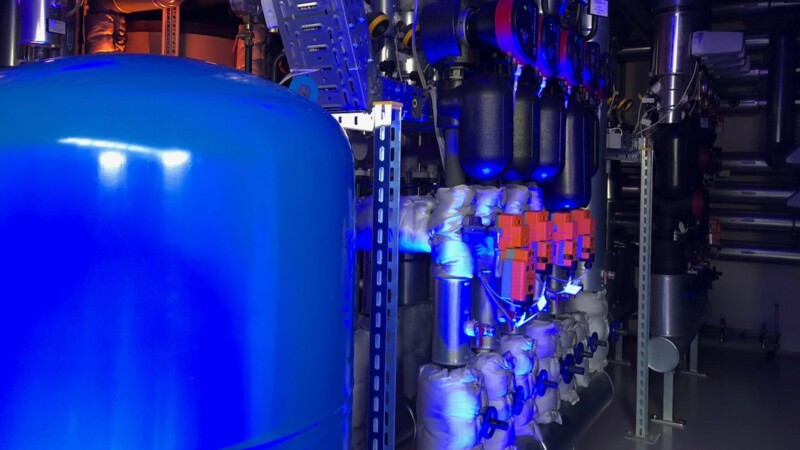"The Energy Campus Bergedorf develops diverse and sustainable solutions for the energy supply of the future and as a real laboratory, shows how to think and research the big picture on a small scale," said Fegebank. According to the University of Applied Sciences (HAW Hamburg), the centre focuses on research into wind energy, storage, system integration, sector coupling, the environment and acceptance as these pillars of the energy transition have yet to covered in practice. The Energy Campus includes a smart grid laboratory for research into intelligent power grids, a wind laboratory, its own photovoltaic plants and the Curslack wind farm with the latest generation of wind turbines.
Katharina Fegebank, Senator for Science and Research, and Lutz Birke, Head of Port and Innovation at the Ministry of Economics and Innovation, visited Wednesday (September 16, 2021) the Bergedorf Energy Campus as part of the new Hamburg Regional Innovation Strategy (RIS) summer tour. The technology centre, which was the last stop on the tour, is considered one of the drivers of research into converting energy generation to renewable sources. Networking between science and industry is pivotal to the Competence Center for Renewable Energies and Energy Efficiency's (CC4E) research into technologies at HAW Hamburg and putting them into practice.
Energy Campus combines research and practice
Knowledge transfer crucial
"HAW Hamburg is making an important contribution to the energy transition in terms of research and knowledge transfer to the region with CC4E," said Prof. Dr.-Ing. Peter Wulf, Vice President for Research, Transfer and International Affairs at HAW Hamburg. The X-Energy project, in which HAW Hamburg and 16 regional and national corporate partners are working on transforming the electricity system, exemplifies the co-operation with industry. Germany's first direct-air capture facility at HAW Hamburg was recently commissioned via the partnership. The transfer of knowledge between science, business, politics and society is "crucial for innovation, but also crucial for our future", Fegebank stressed.
Last stop on RIS summer tour
As part of the summer tour, Michael Westhagemann, Senator for Economics and Innovation, and Fegebank visited the Center for Optical Quantum Technologies (ZOQ) at the University of Hamburg and NXP Semiconductors, a chip supplier, and the Technical University of Hamburg, DESY (German Electron Synchrotron), Science City Hamburg-Bahrenfeld. The senate adopted the RIS strategy under the motto "Working together for a liveable city through innovation" in May. According to the strategy, a "bold culture of innovation" is to be created based on new definitions of future-oriented issues such as health, climate and energy, mobility, data science and digitization as well as materials science and new material.
tn/sb/pb
Sources and further information
More
Similar articles

DESY driving co-operation between science and industry

TU Hamburg driving even more innovations

Senators Fegebank and Westhagemann visit "Hamburg of Tomorrow"
